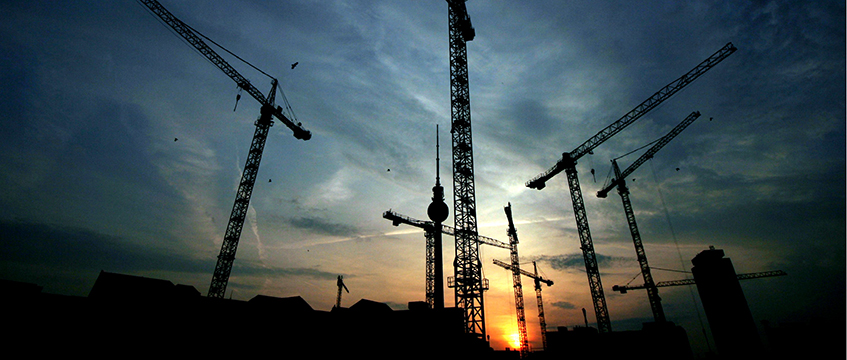Planning approvals slumped and construction starts contracted in the second quarter, as low investor confidence continues to stifle activity.
The latest data from Glenigan shows that detailed planning approvals during the three months to the end of June declined by 29% on the preceding period to stand 1% down on 2022 levels.
Project starts were down 26% against the preceding three months, remaining 42% behind last year. Main contract awards also fell back, down 32% during the three months to June, down by 30% against the same time a year ago.
The July 2023 edition of Glenigan’s Construction Review focuses on the three months to the end of June 2023, covering all major (£100m-plus) and underlying (below £100m) projects.
Economic director Allan Wilen said the next six months were likely to be turbulent. “Upcoming interest rate hikes will further hinder projects moving to site, and we are already seeing work falling back in the civil engineering sector, with marked declines in both infrastructure and utilities,” he said.
“While there are small signs of recovery in the long term, with positive private housing starts an example of stabilising conditions in some verticals, consumer and investor confidence still remains low, generally stifling activity in the here and now.”
Sector analysis
Residential construction experienced a slight upturn during the three months to June as starts increased by 10% (seasonally adjusted), but the sector is still 40% down on the previous year.
Private housing starts increased by 17% against the preceding three months but weakened by 46% compared with the previous year. In comparison, social housing performance was weak, finishing 9% down on the preceding three months, and dropping back 3% on 2022 levels.
Hotels and leisure was the only sector to experience relative growth during the quarter, but even this was modest. Project starts increased by 2% during the three months to June to stand 1% up on the previous year.
Industrial project start performance was mixed, with the value increasing by only 1% during the three months to June, while remaining 33% lower than 2022 levels.
Health performance was also mixed. The value of underlying project starts fell back 22% compared to the previous year, but, more positively, advanced 51% against the preceding three-month period.
Office starts were disappointing, with the value weakening against both the preceding three-month period and the previous year, declining by 38% and 57%, respectively.
Retail project starts also slipped back abruptly, declining by 14% against the preceding three months to stand 44% down on the year before.
Education and community and amenity starts decreased by 18% and 43% against the preceding three months, to stand 2% and 45% down on 2022 figures, respectively.
Civils work starting on-site slipped back, dropping 40% lower than the preceding three months to stand 54% down on a year ago. This was due in part to a marked decline in infrastructure starts, which dropped by 35% against the preceding three months to remain 59% down on the previous year. Utilities starts also declined by 44% against the three months to the end of June, finishing 45% down on a year ago.
Regional analysis
In the North East and Northern Ireland, project start performance was mixed, increasing by 18% and 15%, respectively, but slipping back 33% and 7% on 2022 levels.
The East of England also experienced a mixed period, increasing by 31% against the preceding three months but remaining 36% behind last year’s figures.
Wales suffered the heaviest fall, declining by 46% against the preceding three months to stand 52% down on a year ago.
Yorkshire and the Humber saw the value of project-starts decrease by 17% against the preceding three months and down 41% on the previous year.
In the East Midlands, project starts also experienced falls against both the preceding three months (-1%) and previous year (-40%).
London and the South West weakened against the preceding three months, falling back by 18% and 11%, respectively. Both regions were down on the previous year, remaining 36% and 46% lower than a year ago.
Scotland was down against both the preceding three months (-9%) and the previous year (-27%).
The West Midlands, the South East and the North West all crashed compared to both the preceding three months and previous year.
To send feedback, e-mail julia.cahill@eg.co.uk or tweet @EGJuliaC or @EGPropertyNews











